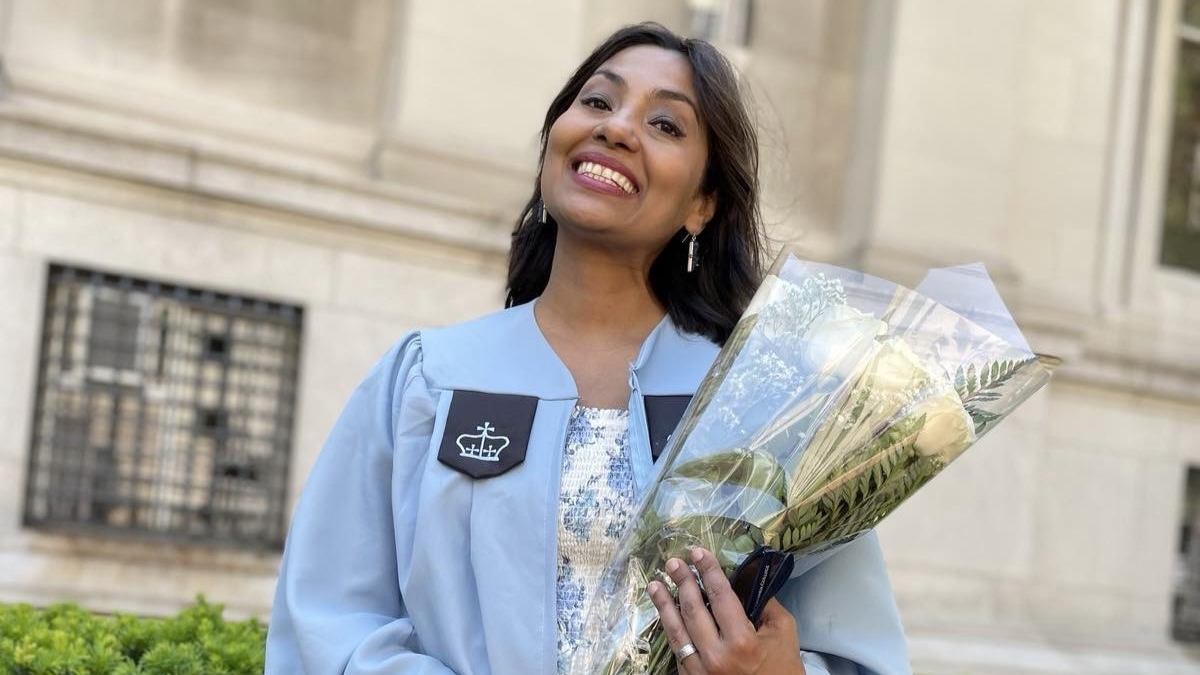Virtual Internship Stories: Sunera Mahbub Rahman
"I have learned how to do market research, overcome language barriers and uncover not-readily-available information."

School: Columbia University
Major: Committee in Global Thought
Center: Rio de Janeiro
Internship: Climate and Society in the Global South
Introduce yourself! Tell us your name, where you’re from, your school at Columbia, and where you are doing your internship.
My name is Sunera Rahman. I am originally from Dhaka, Bangladesh. I am currently a Master’s candidate in the Committee in Global Thought.
Can you share a bit about the project you’re working on?
The project I have been working on is mainly focused on establishing a new Climate Hub in Rio de Janeiro, Brazil. The Climate Hub was successfully launched on March 14, 2023, and is now in the process of setting up.
What is a typical day in your life as an intern? What are your day-to-day duties?
On a typical day, I would do a few hours of research on the web gathering information and collecting data that would be helpful for the Climate Hub’s mission in Brazil. My day-to-day duties would also include reading literature on Amazon, writing up communication material, and reports, and creating Excel spreadsheets.
How have you been finding your internship so far?
The internship has been quite challenging and interesting so far.
I have learned many important things during this internship. I have learned how to do market research, overcome language barriers and uncover not-readily-available information, all critical to setting up a new organization in a foreign country.
How is it different from a more traditional internship/work experience if you have had one? If you haven’t, what is it like being a virtual intern?
This internship is completely different in the sense that my supervisor is in a different time zone and we connect remotely once a week to catch up and discuss our projects.
Why did you pick this internship?
I picked this internship because I am interested in climate change policy and advocacy work in the Global South. Brazil is especially important in its role in fighting climate change due to the Amazon area’s significance in the issue.
What have you learned from this experience?
I have learned many important things during this internship. I have learned how to do market research, overcome language barriers and uncover not-readily-available information, all critical to setting up a new organization in a foreign country.
Do you have any tips for virtual interns?
I would say be prepared to learn new ways of thinking and doing research in unfamiliar areas. You will find the job rewarding.
What are your plans for after the university?
I plan to find a job in the general areas of policy, advocacy, and research. I do not have an exact job title in mind yet. I am starting to explore areas of opportunities.
I would say be prepared to learn new ways of thinking and doing research in unfamiliar areas. You will find the job rewarding.
Do you have any book, podcast, newsletter, or documentary recommendations?
I am a fan of podcasts, especially those related to the environment. I recommend - Communicating Climate Change and Volt.
Is there anything you’d like to highlight about your experiences?
I am a passionate advocate for raising awareness about climate change issues in the Global South. In my work to build a roadmap of stakeholders and researchers in the Amazon, it became evident to me that there is a lot of work to be done in making connections in the region. Columbia University’s administration, students, and faculty – all have a vital role to play. Columbia with its expertise and global capacity can contribute more to fight deforestation, biodiversity loss, and climate change. There is a vital humanitarian need to uphold indigenous rights in the Amazon. By getting more involved through the Rio Global Center and the newly formed Hub, Columbia researchers can pick up more of the pressing concerns in the Amazon. Student programs could be set up for exchange scholars to get hands-on experience in a critical part of the globe. All in all, I think we are moving in the right direction and am very optimistic about the new Climate Hub in Rio that has hit the ground running in breaking down some of the barriers to become a liaison for bilateral efforts.